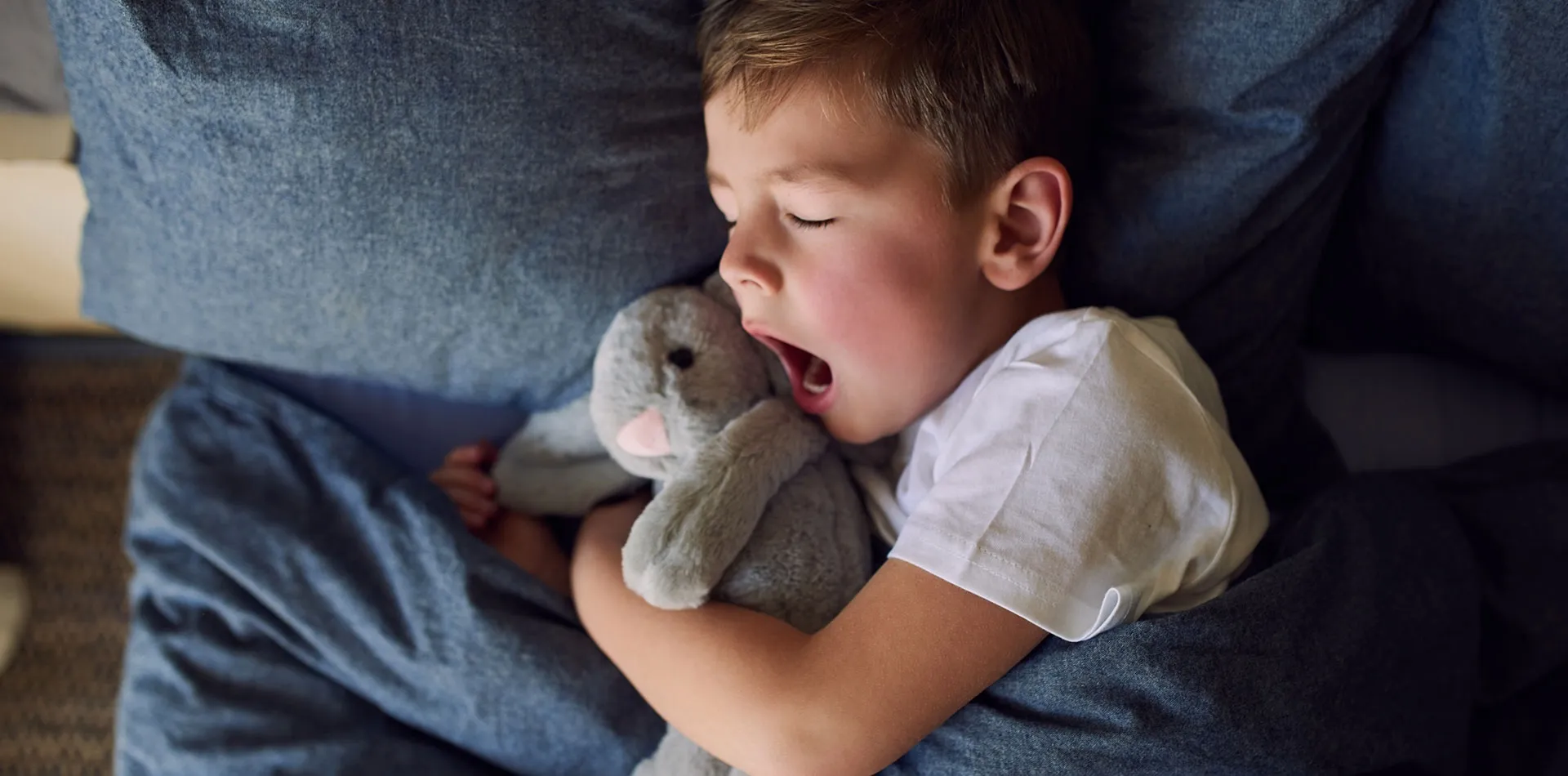
Sleep apnea or SAS (Sleep Apnea Syndrome) is characterized by involuntary interruptions in breathing for a few seconds during sleep, leading primarily to low oxygen in the blood.
Does your child snore regularly? Is he/she constantly tired, even on vacation or after a good night’s sleep? Maybe he suffers from sleep apnea.
- children who were born prematurely
- asthma
- allergic rhinitis
- recurrent ENT infections
- significant gastro-oesophageal reflux
- children with at least one parent who has sleep apnea
All age groups, from a few months of life to 18 years, are concerned. But most often between 2 and 8 years old, than in adolescence, between 12 and 16 years old.
The 3 signs of sleep apnea that should not be overlooked in children
• A child who snores all the time
• A constantly exhausted child
• A child who has difficulty concentrating and behaving
Obstructive sleep apnea syndrome leads to impaired sleep quality, with the most common consequences:
- a hypertonic state during the day (unlike the state of drowsiness found in adults)
- behavioral disorders ("difficult" child, angry, who changes mood or cries easily)
- difficulty in paying attention and remembering at school
- Poor weight gain in the youngest
- We find, more rarely, cardiovascular complications (arterial hypertension)
In children, care must be multidisciplinary, and may involve, depending on the specific needs of each child:
1. Washing the nose before sleeping
2. Weight monitoring (regular physical activities, balanced diet)
3. Surgery to remove the enlarged tonsils and/or adenoids
4. Orthodontist care: breathing through the mouth can cause a growth disorder of the child's jaw
5. Treating associated respiratory problems: allergic rhinitis, asthma
6. Continuous positive airway pressure (CPAP)
7. Staying away from secondhand smoke, indoor pollutants, and allergens
Patient Experience